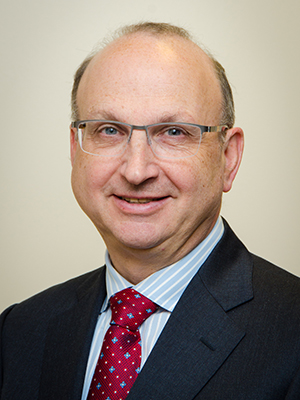Message from Norman Rosenblum, INMD Scientific Director
February 2024

The focus of INMD’s strategic priorities is nutritional and metabolic health for all Canadians. Food and nutrition security is a focus within these research priorities with Canada’s north being an area for our attention. In May 2024, the INMD Institute Advisory Board will meet in Yellowknife to learn from communities first-hand the challenges they face and the strategies they are deploying to address food and nutrition security and the related risk of metabolic diseases, including but not limited to, type 2 diabetes, chronic kidney disease, and Metabolic Associated Fatty Liver Disease (MAFLD). Of relevance to how all of us understand the research agenda in food and nutrition security in Canada’s north, here I highlight a report - Northern Research Leadership and Equity - recently released by the Council of Canadian Academies (CCA), a non-profit organization that convenes experts to assess evidence about complex scientific topics of public interest to inform decision-making in Canada. This report was written by The Expert Panel on the Future of Arctic and Northern Research in Canada and was sponsored by a consortium of Arctic research organizations led by ArcticNet. The mandate of the Expert Panel was to answer the question: Based on assessment of current knowledge and evidence, what are the key foundational elements to create an inclusive, collaborative, effective, and world-class Arctic and northern science system in Canada?
The Panel oriented the report around the affirmation of Indigenous rights (including the right to self-determination) and the responsibilities associated with upholding these rights, as well as the United Nations Declaration on the Rights of Indigenous Peoples and Canada’s Truth and Reconciliation Commission. The Panel identified four key elements necessary for ensuring that Arctic and Northern research in Canada is inclusive, collaborative, and ethical: (i) research in Canada must be just and thereby conducted consistent with the right to self-determination of Indigenous Peoples; (ii) inclusivity and effectiveness in research require that the system provide cultural security for Indigenous knowledge systems and any related data, rooted deeply in Indigenous Peoples’ distinct status, rights, and roles; (iii) all aspects of Arctic and Northern research in Canada, including processes and outputs, must also be accessible; and (iv) research must be based in accountability and rooted in responsibility and reciprocity.
The report contains specific messages for funders and even includes a table outlining responsibilities of different actors to create a more inclusive, collaborative, and ethical Arctic and Northern research system. Many of these actions or responsibilities are related to steps that CIHR has taken to advance Indigenous Health Research, but more needs to be done to address the unique aspects of research in the Arctic and the North. If you have not seen this report, I recommend that you read it since it sheds light on some of the ways that we can collectively improve our actions, and I commend the Expert Panel for their work on this important topic.
Norman Rosenblum, MD, FRCPC, FCAHS
Scientific Director
Institute of Nutrition, Metabolism and Diabetes
- Date modified: